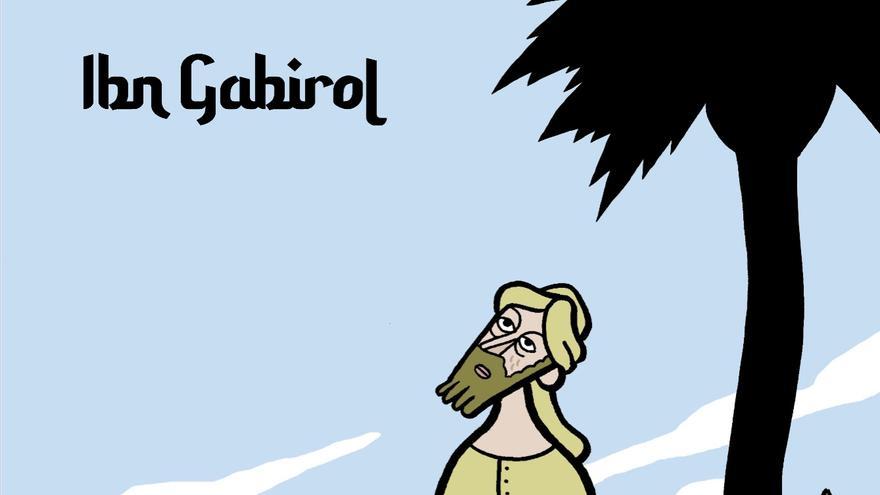–
A thousand years have passed since the birth of the philosopher Solomon Ibn Gabirol, but his image remains just as alive and latent as the first day. The poet was born at a time when there were no influencers or networks, but that was never a barrier for him, and despite that, he managed to become the first universal malagueño in history and in making his works reach any part of the world.
Solomon Ibn Gabirol never had an easy life and that is something that is perfectly appreciated in the comic. The death of his parents, the subsequent loss of his patron and his numerous changes of residences are some of the factors that made the poet go through some difficult moments and that he always reflected in his poems. «He is a very interesting character, the loss of his parents, being at the mercy of his patrons and his current mentality led him to get into controversy for wanting to convey a very modern thought for the time where I lived ”, says the author of the comic.
Miguel B. Nunez in the cartoons of his new comic book ‘Ibn Gabirol’ he presents the adventures and life of this Malaga-born philosopher and poet. His works were not very successful in life but after his death his influence began to grow and he had a great repercussion in characters such as the theologian Alejandro de Hales or even in Santo Tomás de Aquino. Much of his works are missing but thanks to Miguel B. Núñez and his comic “Ibn Gabirol”, we can learn a little more about this relevant character whose poetic work survives to this day and who managed to become the first universal man from Malaga.
Gabirol is a reference for some but a great unknown for others. “If I had to describe him for someone who knows him, I would emphasize that despite being an eleventh century philosopher, he is very modern because of his type of philosophy and his current mentality”, says Miguel B. Núñez. The cartoonist has been collaborating in numerous magazines and comics since the 80s, but with ‘Ibn Gabirol’ he faces a new challenge representing the story of a real and historical character, far from the fictional protagonists to which the author is accustomed. Also, the story is narrated as an autobiographical work and as if it were told by Ibn Gabirol himself.
“I have tried to scratch a bit of memory and the internet to recover the character’s style and the time in which he lived, including how they draw hands or faces to represent the character and the time in which he lived as real as possible”, comments the author of the comic.
This comic has been possible thanks to the work of Miguel B. Núñez, the Federation of Jewish Communities of Spain and the Ibn Gabirol Association, who have provided almost all the information and texts to the cartoonist. The author has made his own vision about the character although giving him has given him a more didactic vision and as faithful to reality as possible.
Salomón Ibn Gabirol will continue to be unknown to many, but we will always have his philosophy and his works that, despite being from the 11th century, reflect today in many aspects. A thousand years have passed since his birth but that so typical way of thinking that he had and that he was one step ahead of the rest will always be remembered. “The beginning of wisdom is to desire it”, a phrase that Gabirol said in the 11th century and that to this day continues to be the engine of many things and is that, as the poet and philosopher himself affirmed, everything begins with the desire to love him, not simply stay with the hope .
– .


